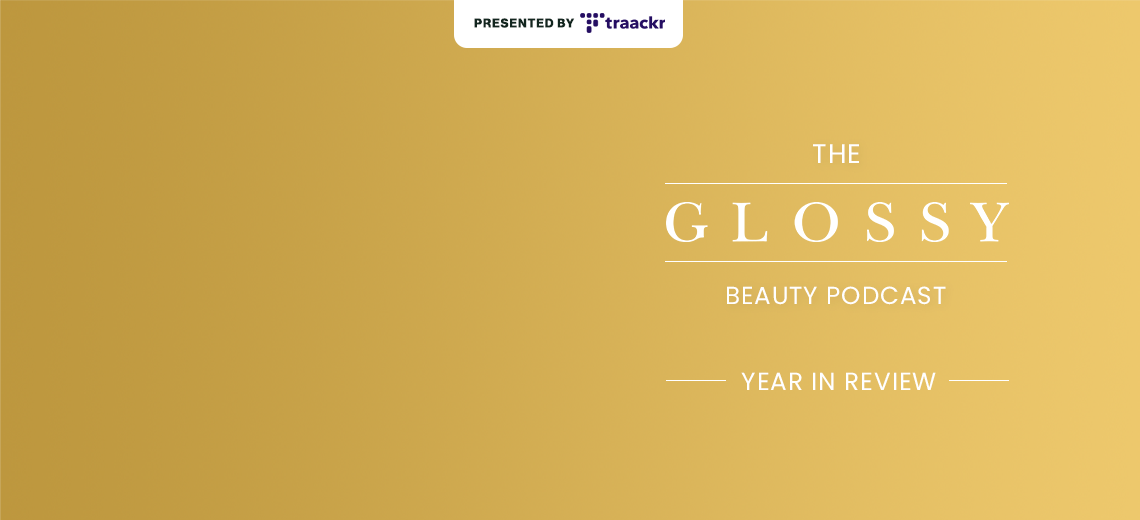This is an episode of the Glossy Beauty Podcast, which features candid conversations about how today’s trends are shaping the future of the beauty and wellness industries. More from the series →
Subscribe: Apple Podcasts | Stitcher | Google | Spotify
In a special edition of the Glossy Beauty Podcast, Jill Manoff, editor-in-chief, sat down with senior beauty reporters Liz Flora and Emma Sandler to review the year in beauty news.
The previous 12 months were, in many respects, a rollercoaster. The year started and ended with a bang, in the form of multiple high-profile acquisitions and investments. Plus, the burgeoning worlds of the metaverse and NFTs ruled conversations, and social shopping and shop-in-shops increasingly dictated where and how people shop.
Below are highlights from the conversation, which have been lightly edited and condensed for clarity.
How social shopping evolved
Flora: “We’ve seen all the platforms really ramp up their social shopping capabilities. Instagram, Tik Tok, Pinterest, Snapchat and even WhatsApp added more social shopping capabilities. We’ve seen the rise of video shopping overall. But there’s also this wave of beauty-focused social shopping apps like Supergreat, Newness, Flip, et cetera, and they have all been onboarding major beauty brands like Too Faced and MAC Cosmetics. They’re both hosting shoppable livestreams and doing TikTok-style shoppable short videos. We’re definitely seeing brands invest in these short videos and livestreams. And we’ve seen influencers [becoming] more like retailers. Brands are finding ways to get influencers to link directly to commerce and connect the influencer posts specifically to purchases.”
Hair care went curly
Sandler: “Hair care had a big year. Some of this was an acceleration of trends that had already begun in 2020. But hair care still had a couple of big developments in 2021, one of which was curly hair care. A lot of brands like Function of Beauty and even heritage brands like Keréstase launched curly hair collections. But we also saw a lot of opportunity on the business side, such as with Mielle Organics, which raised at least $100 million in outside funding, which is pretty significant. That shows how bullish traditional businesses and investors are in the hair care sector, particularly when it comes to curly hair care. Another accelerated category was hair loss and hair growth. Head & Shoulders launched their own hair loss and hair growth collection, while hair growth brands like Vegamour and Nutrafol saw continued growth based off of that category.”
NFTs and the digital world
Flora: “We saw fashion brands get into the [NFT space] first, but beauty got into it pretty quickly thereafter. Starting in the spring, we began seeing independent beauty brands and beauty artists launching NFTs. We’re seeing a combination of [buying] an NFT artwork and [receiving] a physical component [like a beauty product]… We’re also seeing some inklings of how this could actually become part of a brand’s business model. NYX Cosmetics created digital makeup looks for the Crypto Fashion Week event after New York Fashion Week, and this shows that makeup is part of a drive for [overall] looks for digital avatars… We’re all going to want to dress our virtual selves in outfits that are just as stylish as our physical selves. It is yet to be seen, but that’s definitely what some people are really betting on.”
Ad position: web_incontent_pos1
Shop-in-shop till you drop
Sandler: “[This trend is about] showing up where the consumer is. There, for the past several years, has been interesting cross-pollination between brands and retailers or marketplaces. It does not matter now if you buy your products from Sephora, CVS or another pharmacy, or if you buy beauty from the supermarket or Neiman Marcus. [What matters] is if you can get it at a convenient time, it’s available, and it’s perhaps also at an appropriate price point for you as a consumer. We also know that some retailers like Target have a really interesting consumer base who love identifying with the Target brand. So it makes a lot of sense for another retailer like Ulta Beauty to want to harness that. I would be interested in seeing a more traditional department store try and beef up their beauty department by partnering with an [indie retailer like] Detox Market, Credo Beauty or Violet Grey.”


